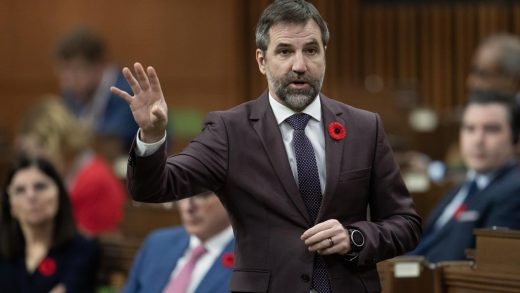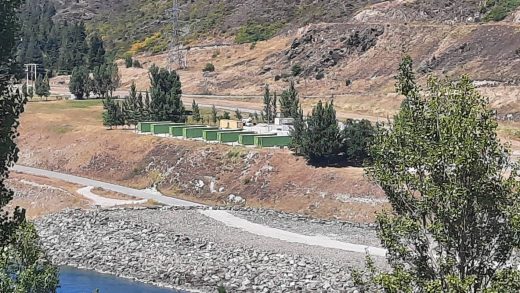
MPI is offering overtime and adding staff to deal with a massive backlog of thousands of cancelled road tests and other appointments following a bitter 65-day strike.
The strike affecting approximately 1,700 employees was the first in the Crown insurance company’s 52-year history and one of the longest-ever public-sector labour disruptions in Manitoba.
The auto insurer estimates it will take at least six months to catch up on more than 11,900 cancelled road tests and 4,000 vehicle-damage estimating appointments.
Kyle Darbyson/Winnipeg Free Press Files MPI says it has a massive backlog of cancelled road tests and appointments following a 65-day strike by its employees.
Between August and October, MPI typically completes about 17,000 damage estimates and 19,000 road tests, spokesperson Kristy Rydz said Thursday in an email, adding customers are being contacted to reschedule.
MPI is asking for patience as its service and claim centres reopen to customers Friday at 1 p.m.
All front-counter services will resume, except for booking new driver-testing appointments. No new road test appointments are available until the cancelled appointments are rescheduled.
The backlog includes 1,700 applications for driver abstracts and 126 cancelled driver-fitness appointments, Rydz said.
The strike ended Wednesday after 1,700 members of the Manitoba Government and General Employees’ Union voted to accept a four-year contract that included a 13 per cent wage increase, an $1,800 signing bonus and 10 days of “recognition pay” for the time workers spent on strike while bargaining stalled because of the Oct. 3 provincial election and government transition.
“We had no one to bargain with,” MGEU president Kyle Ross said Thursday. “Normally, governments close up bargaining months and months and months ahead of an election — they don’t like strikes and things to flow through an election.”
That was not the case this time around.
“There was no ability to move on the previous mandate,” Ross said, referring to MPI’s pre-election board, which was restricted by the former Progressive Conservative government.
“They weren’t authorized to offer any more than they’d previously been authorized for… they were kind of in a no-man’s land until the government changed.”
After the NDP was elected Oct. 3, it was two weeks before the cabinet was sworn in. Justice Minister Matt Wiebe, who isresponsible for MPI, swiftly replaced the board chair and all but one board member on Oct. 20, directing the new lineup to resolve the labour dispute.
Two weeks later, the strike is over and employees returning to work face a daunting backlog.
“It’s not like a factory where the machines shut down and production just kind of stops, and then you want to turn the machines back on (so) the production starts again,” said Julia Smith, a University of Manitoba assistant professor of labour studies.
“There’s a lineup of people waiting for their claims to be processed, for tests to be booked, all those kinds of things,” Smith said. “That work hasn’t gone anywhere.
“People, I think, underestimate how emotional strikes are, regardless of how they end — whether you feel like you won or you feel like you lost. There’s always kind of this period of transition back, and then the workload is always an issue.”
The province’s longest public-sector strike in recent memory was in 1996 and lasted 95 days, according to the Manitoba Federation of Labour. Close to 600 MGEU members working for the former Manitoba Lotteries Corp. at government-run casinos and entertainment centres walked off the job.
The dispute over the summer involving 1,400 Manitoba Liquor and Lotteries employees began July 19 with rotating strikes and escalated to a provincewide walkout Aug. 8. Those MGEU members went back to work after voting in favour of a four-year deal providing a 12 per cent wage hike Aug. 27.
And, after back-to-back strikes at MLL and MPI, another 11,000 provincial government employees who’ve been without a contract since March have given MGEU negotiators a strike mandate.
The civil servants include correctional officers, conservation officers, public health inspectors, snow-plow and grader operators, sheriffs, clerks of the court and social service workers across the province.
The employer and union last met Aug. 31 before bargaining was suspended until after the election and the next government was sworn in, Ross said.
“We’re just about to start to ramp up bargaining again,” he said Thursday. “We haven’t reached out to the employer yet but we will be shortly to set up dates, get back to the table and hopefully bargain a deal.”
The fact MPI workers were able to get a slightly better deal with the new NDP government than MLL employees got under the Tories bodes well for civil servants when talks begin again, Ross said.
“The government sets the mandate and they usually set it public-sector wide,” he said. “We’re definitely hopeful that this will lead to a better deal than we would’ve got even a month ago, before the election.”

Carol Sanders
Legislature reporter
After 20 years of reporting on the growing diversity of people calling Manitoba home, Carol moved to the legislature bureau in early 2020.
Read full biography


